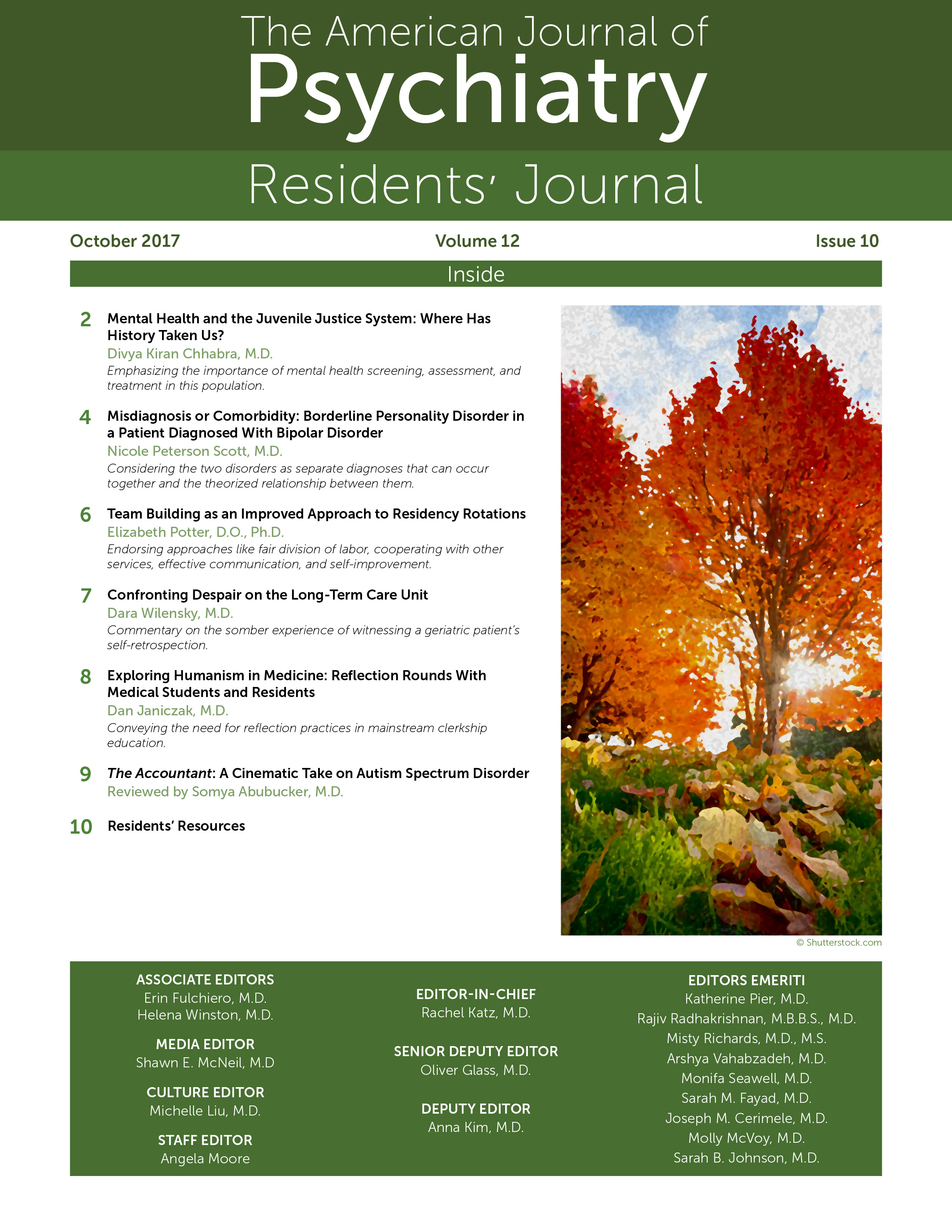Confronting Despair on the Long-Term Care Unit
“Nancy,” at 75 years old, was among the younger patients I interviewed during my PGY-3 geriatrics rotation, but both her physical condition and her declining cognitive status belied her younger age. She was petite and frail, sitting plaintively in a wheelchair pointed toward a blank wall; she halfheartedly raised a vacant gaze in my direction when I sat beside her. Faint, crusted remnants of her lunch lingered on her shirt.
I introduced myself as a psychiatrist, and Nancy told me she had once studied psychology, but this is where any coherent back-and-forth ended. Her lack of relatedness, as well as her semantic aphasia, made it seem as if we were talking in parallel, conversing near each other but not together. Despite her graduate-level education, she could tell me only that her children lived in “x or y, one of those towns around here,” and she had once worked “a job of sorts.” When I asked where she had gone to school, she launched into another perplexing speech, this time saying, “I had such high expectations, really wanted to be good in my field, good psychologist, good job, a real golden girl of psychology … now I just don’t know … looking at what I’m supposed to be doing and being now and that’s why.” An immense sigh escaped from her, causing her tiny body to visibly deflate. She looked and sounded so despondent but could not articulate what had disappointed her so. We sat in solemn silence for a moment before she said, “I don’t really have a sad tale; I’m just a sad person.” And later, “Nothing is really wrong, no, no nothing wrong, just nothing right either.”
There was so much about my first encounter with Nancy that was captivating. Her speech had such a ruminative, stereotyped quality that it bordered on verbigeration, making palpable her struggle to communicate. I found myself thinking of Nancy in Eriksonian terms as she approached her final task of psychosocial development: retrospection. She was grasping for contentment or ego integrity, and even dementia could not suppress the powerful affect associated with this experience. As she attempted to be proud of a successful family, process professional disappointment, and understand her purpose in the milieu of a long-term care facility, she was wrestling with the existential question of “is it okay to have been me?” and coming up with a resounding “no” for an answer. She was truly in despair.
When I left Nancy’s room after our first meeting, I was unsettled. After reflecting on the experience of seeing someone with so little ability to understand her own misery at the end of her life, it would be gratifying to say that I have gained new insight into, or appreciation for, my own burgeoning relationships, career, and identity. But I mostly feel sad. This sadness, though, might be what I am tasked with right now. I can hold Nancy’s hopelessness and despair along with her, allowing her space to continue to ask her own questions.



